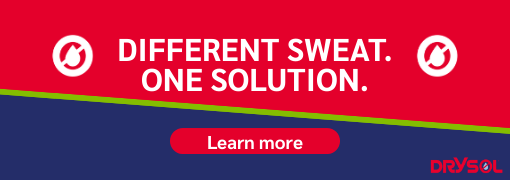The simpler your high blood pressure medication routine, the easier it will be to remember. Here are a few tips on how to simplify your medications:
- Find a medication you can take once daily (if possible): Studies show that it's easier to remember your medication if you take it once daily than if you take it more frequently. If you're taking a medication two or more times a day, ask your doctor or pharmacist whether you could use a once-daily medication.
- Use a combination product (if possible): If you are taking two or more blood pressure medications, you may be able to use a combination product instead. Combination products contain two or more ingredients in a single pill. Check with your doctor or pharmacist to see if a combination product may be an option for you.
- Find out what else you can do to lower blood pressure: Healthy eating, weight loss, and exercise can all help reduce your blood pressure. These measures are important for everyone with high blood pressure, even those on medications. Sticking to a healthy diet and exercise program may lower your blood pressure to the point where you may be able to stop taking one or more of your medications. To get started, talk to your doctor or pharmacist.
- Make medication-taking part of your daily routine: Take medication at the same time as something else that you do regularly, such as brushing your teeth in the morning or getting ready for bed. Before you decide on an activity, first check with your doctor or pharmacist to see if your medication should be taken with or without food, and whether it is better taken at a certain time of day (for example, some medications should be taken in the morning).
If you're taking more than one pill, or taking a medication more often than once a day, check with your doctor or pharmacist to see if your medications can be simplified. This may not be possible for everyone, but it's worth looking into.
All material copyright MediResource Inc. 1996 – 2025. Terms and conditions of use. The contents herein are for informational purposes only. Always seek the advice of your physician or other qualified health provider with any questions you may have regarding a medical condition. Source: www.medbroadcast.com/healthfeature/gethealthfeature/Dont-Miss-a-Dose
"Take your medication regularly," your doctor or pharmacist tells you. With high blood pressure medication, you may wonder: what's the point? It doesn't seem to be doing anything, except maybe giving you side effects. But that's not the whole story. Blood pressure medications do a lot of work "behind the scenes" to improve your health. Here's the scoop.
You need a certain amount of pressure in your blood just to keep it flowing through your body. However, if the pressure gets too high, it can damage your blood vessels and organs. This usually doesn't happen right away, unless your blood pressure is extremely high. But not treating your high blood pressure, can lead, over time, to an increased risk of heart attack, heart failure, stroke, kidney disease, and blood vessel damage. The higher your blood pressure, and the longer your body is exposed to it, the greater your risk of health problems.
Along with blood pressure-healthy changes to your lifestyle, such as losing weight, healthy eating, managing stress, and increasing exercise, blood pressure medications are important to reduce your risk of blood pressure-related health problems. They work in various ways to reduce the pressure of the blood on the blood vessels. But medications aren't a cure for high blood pressure. When the medication is not in your body, your blood pressure can go back up, increasing your risk of health problems. That's why blood pressure medications need to be taken regularly in order to work. It's also important to have your blood pressure checked regularly so that you and your doctor can see how well the medication is working.
87% of people with high blood pressure are either untreated or undertreated. Don't be one of them! Follow our tips to help you take your medication regularly.
All material copyright MediResource Inc. 1996 – 2025. Terms and conditions of use. The contents herein are for informational purposes only. Always seek the advice of your physician or other qualified health provider with any questions you may have regarding a medical condition. Source: www.medbroadcast.com/healthfeature/gethealthfeature/Dont-Miss-a-Dose
You're walking in the door at work when it hits you: you forgot your blood pressure medication, again! Sound familiar? Even when you know it's good for you, it's not always easy to remember to take your medication. So what can you do? Here are a few ideas.
Make your medication part of your daily routine. See the next section of this health feature, "Keep it simple," for details.
Use a memory aid:
- Dosettes are small containers with a "window" for each day (or time of day). You fill them with your medications, then open the "window" to get your dose. This system lets you see which doses you've taken. Some medications come in blister packs similar to a dosette, with one blister for each dose.
- Alarms can be set to go off when it is time for your next dose. You don't need to buy a special alarm for this – the alarm on your watch, laptop, cell phone, or alarm clock will work just as well.
- Charts or calendars can help you remember to take your dose.
- Electronic caps for medication containers can show the time when the vial was last opened. This can help you see whether you took your last dose.
- Some pharmacies and drug companies offer reminder services (by phone or email) to help you remember to take your medication.
The key is finding a memory aid that works for you. Speak to your doctor or pharmacist about your options.
Simplify your medication routine. The fewer pills you have to take, and the less often you need to take them, the easier it will be to remember. If you're taking pills more than once a day, ask your doctor or pharmacist if there's a treatment you could use only once a day. If you're taking more than one pill, see if you can switch to a combination product containing both drugs in a single pill.
Talk to your doctor or pharmacist. They can give you advice on what to do if you miss a dose. They may also be able to suggest ways to help you remember your medication, or to make your medication routine simpler. Your doctor can also help you stay on track by measuring your blood pressure so that you can see how the medication is working.
All material copyright MediResource Inc. 1996 – 2025. Terms and conditions of use. The contents herein are for informational purposes only. Always seek the advice of your physician or other qualified health provider with any questions you may have regarding a medical condition. Source: www.medbroadcast.com/healthfeature/gethealthfeature/Dont-Miss-a-Dose
You're not alone in the fight against high blood pressure!
Your doctor and pharmacist can help you by:
- keeping track of your blood pressure and adjusting your treatments to help you achieve your blood pressure goals
- helping you understand how to take the medication and what to expect while you are on it
- suggesting ways to make it easier to remember your medication, or ways to simplify your medication routine, such as switching to a medication that is taken only once a day or a combination product, which contains two or more ingredients in a single pill
- helping you deal with treatment side effects
- suggesting healthy lifestyle changes (such as diet and exercise) to help lower your blood pressure and prevent health problems
- helping you stay motivated and keep on track with medications and lifestyle changes
How can you take advantage of this great resource? Every relationship is a two-way street – here's how to help your doctor or pharmacist help you:
- Take your medication as directed.
- Attend your follow-up appointments regularly, even if you are feeling fine.
- Let your doctor or pharmacist know if you have any treatment side effects.
- When you're starting a new medication, make sure you understand how to use it and what to expect.
- Don't be afraid to ask questions at any time – your doctor or pharmacist is there to help – not to judge.
- If your doctor or pharmacist asks you how often you're taking your medication, be as honest as you can. They won't hold it against you. If you pretend you've been taking a medication when you haven't, the doctor may think it's not working and add another medication, leading to extra expense, confusion, and possibly more side effects for you.
Not sure what to ask? Here are a few questions to get the conversation started:
- What is my blood pressure now?
- What should my blood pressure be?
- In addition to taking my medication, what else can I do to lower my blood pressure (e.g., exercise, healthy diet)?
- What side effects can my medication(s) cause, and what should I do if I have a side effect?
- Is there any way to make my medication routine simpler (such as switching to a medication that is taken fewer times per day or taking a combination product)?
- What should I do if I forget a dose?
- What can I do to make it easier to remember my medication?
To get the most out of your blood pressure treatment, keep in touch with your doctor or pharmacist. You'll be glad you did!
All material copyright MediResource Inc. 1996 – 2025. Terms and conditions of use. The contents herein are for informational purposes only. Always seek the advice of your physician or other qualified health provider with any questions you may have regarding a medical condition. Source: www.medbroadcast.com/healthfeature/gethealthfeature/Dont-Miss-a-Dose

